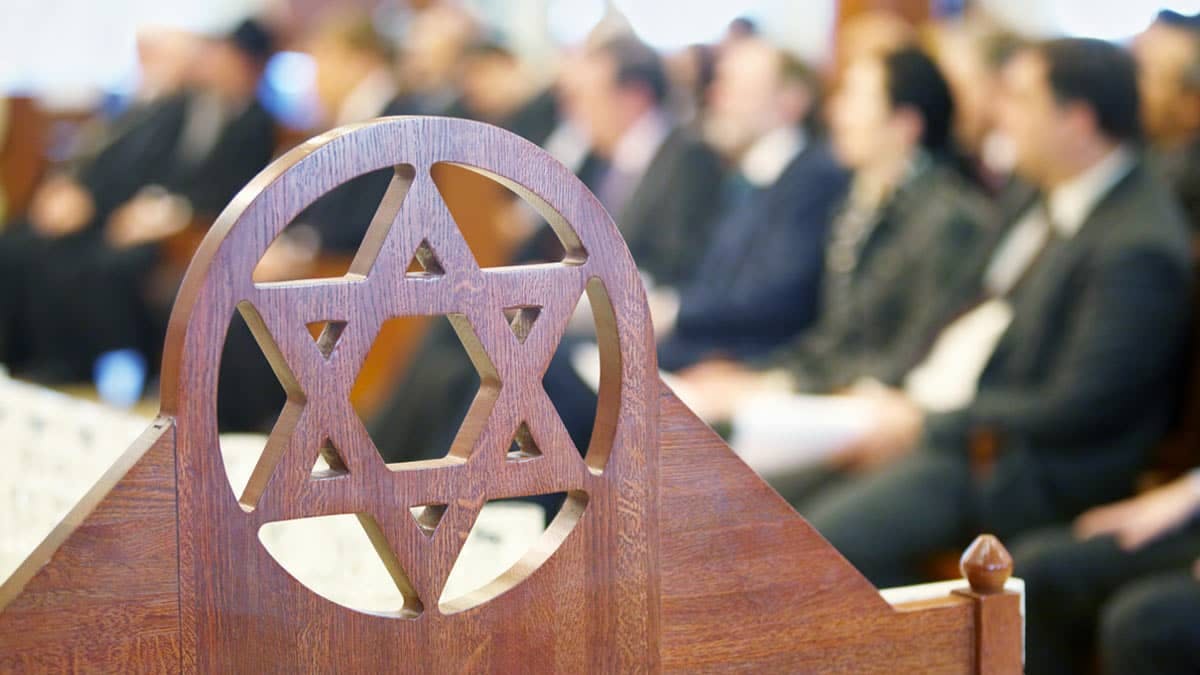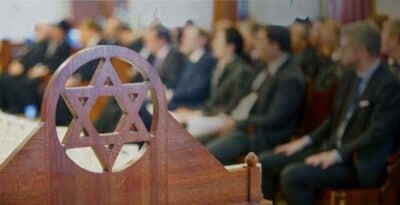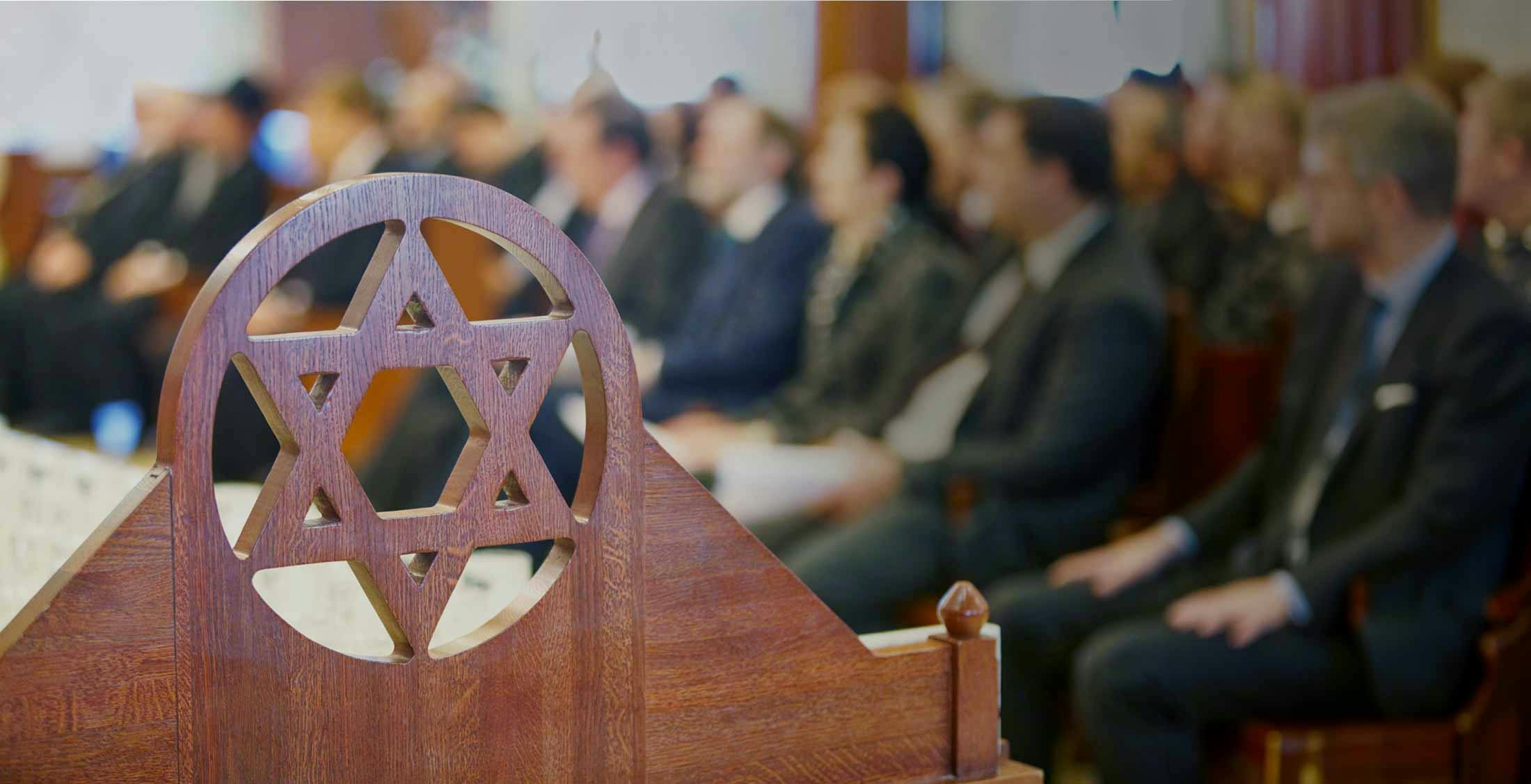
How to Observe a Messianic Yom Kippur
The Day of Atonement is a chance to come clean.
by Jews for Jesus | September 18 2023
He failed his mission before he even began. Ironically, though he knew God was everywhere, he ran away from the Lord. As he hid in the cargo hold of the ship, God pursued him with a storm, and the lives of all were almost lost–until the lot fell to him, the sailors said, “Who are you?” and the runaway prophet finally confessed. Jonah threw himself on the mercy of God and instructed the sailors to throw him into the sea.
Like the prophet Jonah (whose book is the synagogue reading for Yom Kippur), we often try to cover up our mistakes–to hide from God and others. We may look cheerful and “together” on the outside or even say what Jonah might have said if he’d boarded the ship in our day and age: “I’m good; just along for the ride!” All the while we’re haunted by a lingering sense of guilt. We know what we probably should have done: “I should have helped that friend in need, I should not have said that to my friend/spouse/child.” And we somehow failed to do what was right. Again. Just like Jonah knew he should have gone to Nineveh but sailed in the opposite direction.
And especially at Yom Kippur, the most holy and solemn day in a Jewish year, we’re reminded of the times when we’ve been less-than-holy.
We openly bring our failings to God so that He can remove them.
But even though Yom Kippur forces us to admit sin, the point is not to wallow in it.The Day of Atonement, as our ancestors experienced it, was a gift–a gift of God’s forgiveness.
Many people (Jewish and non-Jewish alike) want to show our best sides to God and others. But that mindset may lead us to try to hide what’s inside. In fact, ever since the garden of Eden, we’ve been trying to cover up our shame (Genesis 3:7). Yet don’t we, like Jonah, know that the Lord sees all?
The Day of Atonement is about our being able to openly bring our failings to God so that He can remove them. That cleansing and renewal is exactly what a Messianic Yom Kippur focuses on.
Here’s a look at the meaning and practices of Yom Kippur and what Jesus has to do with it all.
Understanding the Day of Atonement
When God gave Moses instructions for Yom Kippur, He included a prohibition. “The Lord said to Moses, ‘Tell Aaron your brother not to come at any time into the Holy Place inside the veil, before the mercy seat that is on the ark, so that he may not die. For I will appear in the cloud over the mercy seat’” (Leviticus 16:2, emphasis added). Aaron and the succeeding priests were not to enter into the Holy of Holies at any time they chose, but only on one day of the year: the Day of Atonement.
God always had a forgiveness plan in place.
In English, atonement has also been coined “at-one-ment” because it makes us at one with God. A sacrifice for sin is necessary in order for us to have this “at-one-ness” with the Lord because, as we can see in the above prohibitions given to the priests, sin has no place in the presence of God. That’s what the Bible means when it calls God “holy.” He is set apart in such a powerful way that evil can’t come into His presence. And it’s dangerous for humans, tainted by evil as we are, to approach Him.
That’s why God gave us Yom Kippur as a time to repent and be forgiven. We recognize our sin and turn to God, who knew that we would err and always had a forgiveness plan in place. The ancient Levitical system involved an animal sacrifice for sin, and in the fulfillment of those traditions, the Messiah himself has become our once-for-all sacrifice for sin. He poured out his whole life in order to make atonement for his people–and for the whole world.
He was pierced for our transgressions; he was crushed for our iniquities; upon him was the chastisement that brought us peace, and with his wounds we are healed (Isaiah 53:5, emphasis added).
As Messianic Jews, we believe that though God sees right through our hearts like He saw through Jonah’s, He still loves us. And Yom Kippur is a chance to celebrate how He has dealt with our sins and healed us through the gift of atonement.
A Day of Fasting, Prayer, and Purity
- Though Yom Kippur may or may not fall on Shabbat, it is considered a day of rest. “It is a day of sabbath rest, and you must deny yourselves; it is a lasting ordinance.” (Leviticus 16:31 NIV, emphasis added) Denying ourselves means abstaining from food and other normal activities. Like Shabbat, Yom Kippur begins at sundown and ends the following sundown. So a full 24-hour fast is part of traditional observance, though children, pregnant women, and the ill are considered exempt from fasting.
- Many attend synagogue for special readings and liturgical prayers on Yom Kippur. The book of Jonah is read as a reminder of teshuva–a word that’s often translated “repentance,” which can also mean “return” or “beginning.”1 If you don’t have a synagogue nearby, take turns reading aloud from Jonah with your family, friends, or whomever wants to join you! Jonah is one of our most well-known prophets, possibly because he is so relatable. Yet we see the steadfast love of God follow Jonah wherever he fumbles. When Jonah ran, God pursued; when Jonah repented, God saved him. When Jonah finally obeyed, God blessed his ministry; and when Jonah argued again, God was his teacher! Like Jonah, we can experience the faithful love of God when we turn back to our original state–dependence on Him.
- Some may wear white as a symbol of our purity before God. Yom Kippur is also prospective: it is a time to be cleansed as we look forward to the year ahead. It concludes our Ten Days of Awe which have been set aside to help us turn our attention back to the Lord. Traditionally, it’s considered a good time to make amends with anyone we have wronged and to extend forgiveness to those who may have wronged us. On Yom Kippur, Jewish believers in Jesus may remember these words of his: “You shall love your neighbor as yourself” (Mark 12:31). Thus as we seek repentance and forgiveness from God, we are also seeking the strength to follow and obey Him anew.
- For Messianic Jews, this holiday is no less significant. We may fast on this special day, not to try to prove anything–but to remember the seriousness of our sins and the gift of forgiveness we have in Yeshua (Jesus).
Just because Yom Kippur is a day of fasting doesn’t mean we can’t end it in the most Jewish way possible–gathering around a table together. And what better way could there be to break the fast? God has provided a way to atone. We have much to celebrate!
Confession and Forgiveness
We also rejoice that we can come to God without the anxiety that has often plagued us when we contemplate our own sin. Messiah is not only the perfect atoning sacrifice, he’s the perfect mediator, because he walked through the difficulties of a human life and understands our weaknesses.
If we confess our sins, He is faithful and just and will forgive us.
The writer of the book of Hebrews (a New Testament book written to Jewish followers of the Messiah) puts it this way:
“Since then we have a great high priest who has passed through the heavens, Jesus, the Son of God, let us hold fast our confession. For we do not have a high priest who is unable to sympathize with our weaknesses, but one who in every respect has been tempted as we are, yet without sin. Let us then with confidence draw near to the throne of grace, that we may receive mercy and find grace to help in time of need.” (Hebrews 4:14-16, emphasis added)
John, a first-century Jewish disciple of Jesus, famously said: “If we confess our sins, he is faithful and just and will forgive us our sins and cleanse us from all unrighteousness” (1 John 1:9, emphasis added).
We can come to the Creator just as we are–no cover-ups, no pretending? It sounds wild. Almost as wild as Jonah being saved by being tossed into the sea.
Atonement Made Permanent
Leviticus tells us that God is so holy that if the priest neglected any of his duties on Yom Kippur yet still entered the Holy of Holies, he would die. And there were further instructions for the moment he did enter.
He is to put the incense on the fire before the Lord, and the smoke of the incense will conceal the atonement cover above the Testimony, so that he will not die (Leviticus 16:13, NIV).
Even on this one day in the year when all the prescribed sacrifices were made and the priest was allowed to enter, he would still be prevented from laying eyes on the glory of God.
And even with all the priest’s carefully-followed procedures, the goat given up as a sin offering and the goat given up as a scapegoat only provided forgiveness for one year at a time. As the traditional saying at the High Holy Days says it, may you be inscribed for a good year—that is, inscribed in God’s book of life.
But ultimately God would need to complete our forgiveness, inscribe our names permanently in His book of life–and in Messiah Jesus, we believe He did just that.

